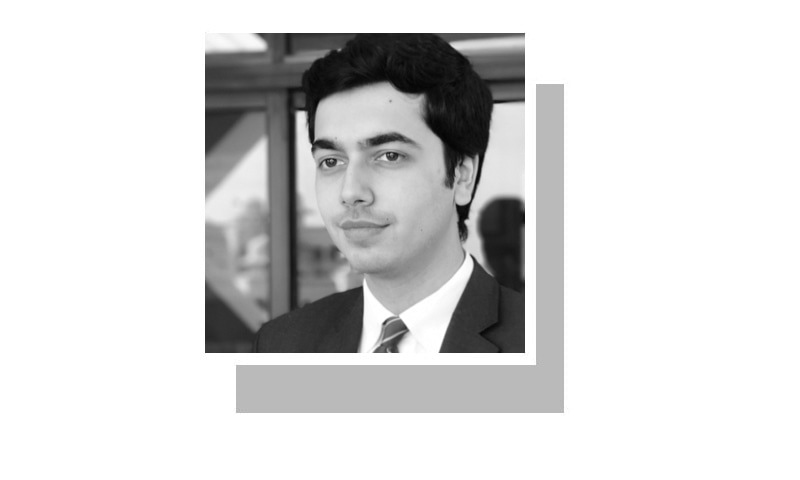
WHEN asked why the ANP had been wiped out in Khyber Pakhtunkhwa in the 2013 polls, Asfandyar Wali Khan said that though the chief election commissioner for the rest of the country had been Fakhruddin G. Ebrahim, their own CEC had been Hakeemullah Mehsud.
It makes for a stark contrast — the great and good Ebrahim versus the blood-splattered butcher Hakeemullah — but it drove Asfandyar’s next point home: while the other parties were conducting elections, he said, the ANP had been conducting funerals.
Three days after Asfandyar’s interview was aired, Haroon Bilour was killed along with 20 others during an ANP corner meeting in Yakatoot. Three days after that, another suicide bomber tore through a BAP rally in Mastung, killing Siraj Raisani and nearly 150 others in the kind of carnage we hadn’t seen since APS Peshawar. And some 140 kilometres from Peshawar, there was an attempt on Akram Durrani’s life in Bannu, leaving four dead.
A country that refuses to remember its heroes can only be run by its villains.
If any one week showed there were two countries that call themselves Pakistan, it was this; one the land of constant loss, and the other where we constantly lose our memory.
We forgot that the same kind of attempt was made to assassinate the same JUI-F leader in the same city in 2015. We forgot that neither the Raisanis nor the Bilours were unscathed by terror: Haroon lost his father to militancy in 2012, Siraj his son in 2011. There was also the humanity that received no coverage at all: Abdul Khaliq, who lives in Daringarh, lost three of his sons aged eight, 10, and 17 at the BAP rally. He called the blast ‘doomsday’.
But on July 13, the only doomsday the press knew or cared about was the return of Lahore’s favourite son. Though there came the sounds of explosions in the distance, we had wall-to-wall coverage of a plane route instead. At its highest, it was the stirring picture of a three-time prime minister courting arrest, and looking the deep state in the eye. At its lowest, it was a band of penthouse pirates being punished for among the dumbest and most dishonest explanations given for one’s assets ever, with the civ-mil imbalance being deployed as a desperate shield.
Regardless of where one stands on the spectrum, those were the only two stories to tell, and neither merited more coverage than Mastung. But that wasn’t the case: even as half the country fought to breathe, the hijinks around Takht-i-Lahore — ie the pillow fight between Nawaz Sharif and the establishment that established him — ate up Peshawar and Mastung, Yakatoot and Daringarh, Khyber Pakhtunkhwa and Balochistan.
This is not how federations are held together. As one scholar rightly said of the Mastung massacre, ‘[Balochistan’s] population is 12.34 million […] in cold percentage terms of equivalent impact this would be near 400 dead in KP or 1,200 in Punjab in one attack.’
Yet we remained indifferent. “I told an East Pakistani friend once,” Ayub Khan recalled in his memoir, “‘You have such sweet music. I wish to God you were half as sweet yourself’.”
We all know the day that music died, but attitudes towards our ‘naraz bhai’ in Balochistan remain as condescending. As patriotism is ostensibly outsourced to sectarian monsters, dissent has given way to foreign-funded separatism. In the fight between them — between sectarian slaughter on one hand and the ethnic cleansing of settlers on the other — we are content to forget. Mastung will be forgotten, in the same way the Hazaras protesting on Alamdar Road have been forgotten, and a generation of lawyers lost in Quetta has been forgotten. A country that refuses to remember its heroes can only be run by its villains.
And those villains are closer to parliament than ever before. In terms of extremist parties, we have a whole bonanza to pick from, and each come with their own agenda — from sectarian supremacy to foreign conquest. To the Election Commission that registers them, the caretaker government that ignores them, and the establishment that mainstreams them: it’s hard breaking the back of terror, sirs, when we keep grafting the bone back together.
In the end, it may be best to remember another forgotten ANP rally from five years ago — a gathering in Peshawar’s Gilani Chowk that would also be hit by a suicide bomber. As 15 lay dead, the Tehreek-i-Taliban spokesman Ehsanullah Ehsan phoned in with a clarification: their target had really been Haroon Bilour — who wasn’t in attendance that day — as opposed to Haroon’s uncle Ghulam Ahmad. Not that Ehsan discerned much among the Bilour family — he’d also claimed responsibility for the murder of Haroon’s father, Bashir Bilour, in 2012.
But six years can be a lifetime in Pakistan. Today, Ehsanullah Ehsan is the poster-boy for ‘mainstreamed militant’, his career as a mouthpiece for mass murder just a figment of the past.
And, as they say, the past is another country.
The writer is a lawyer.
Published in Dawn, July 19th, 2018











































